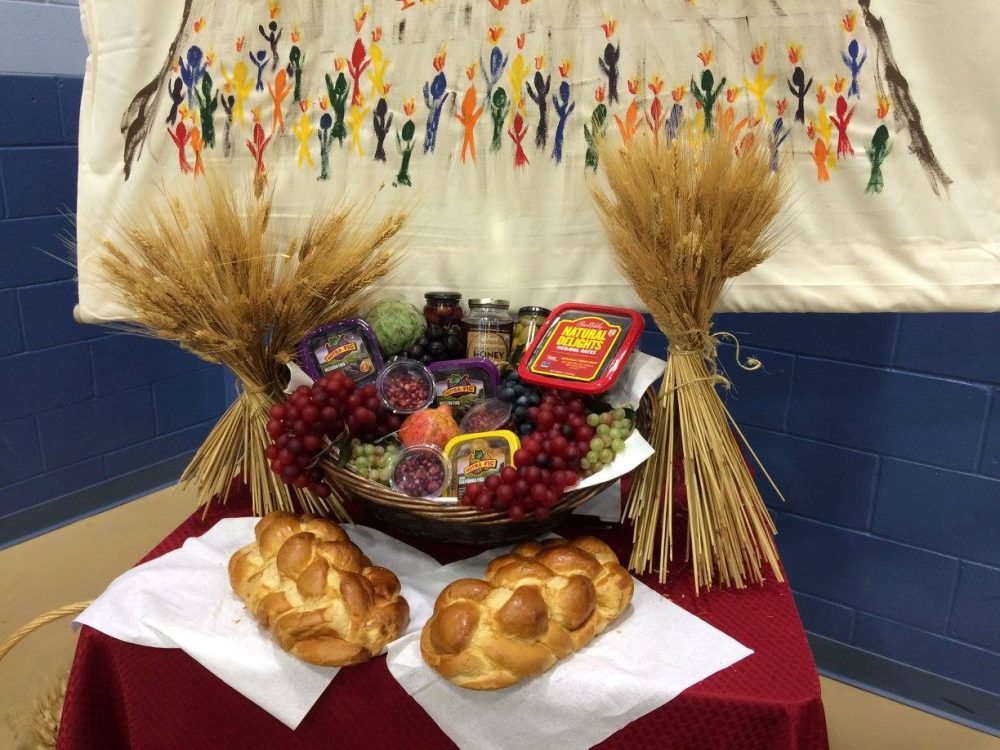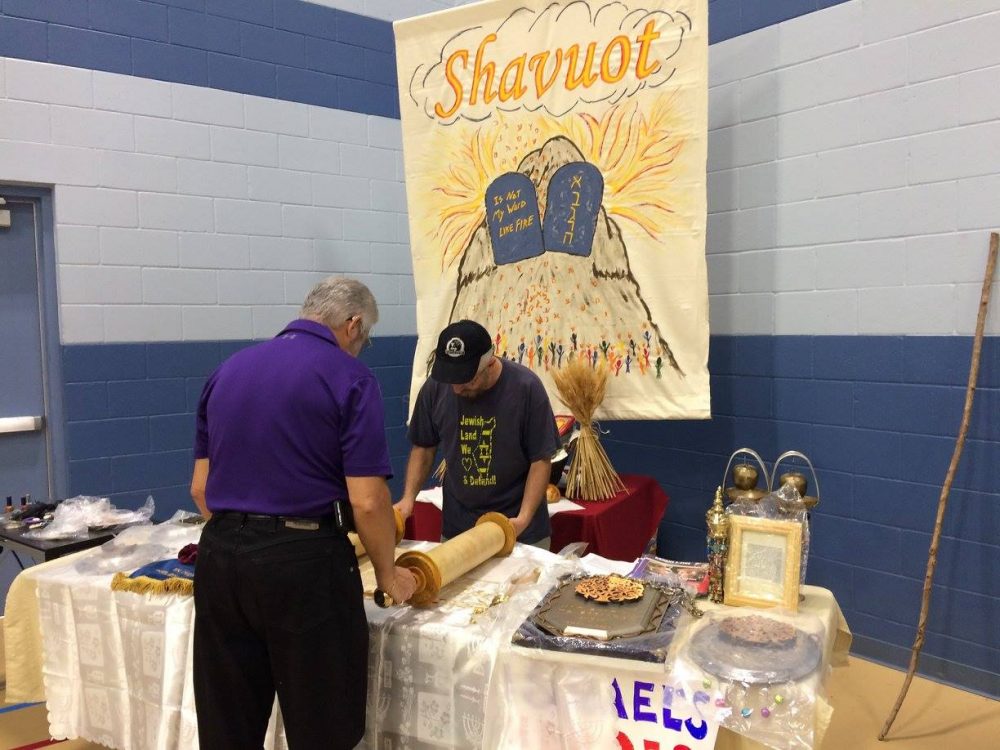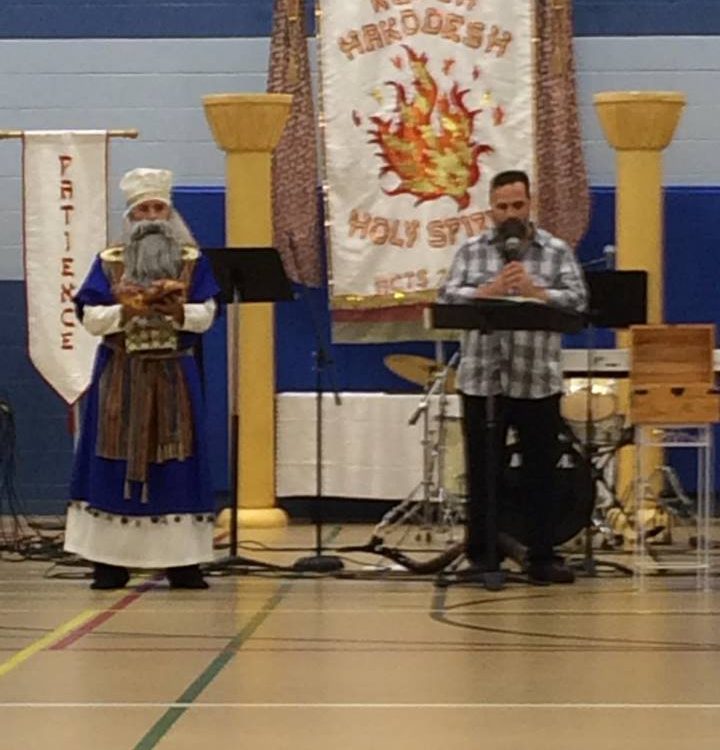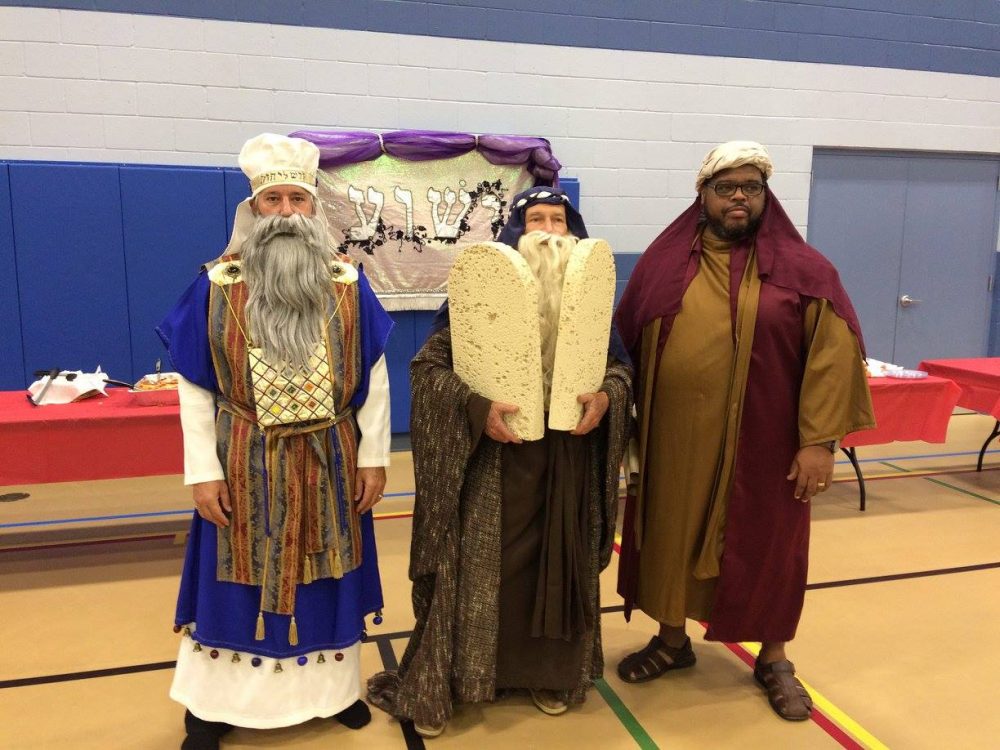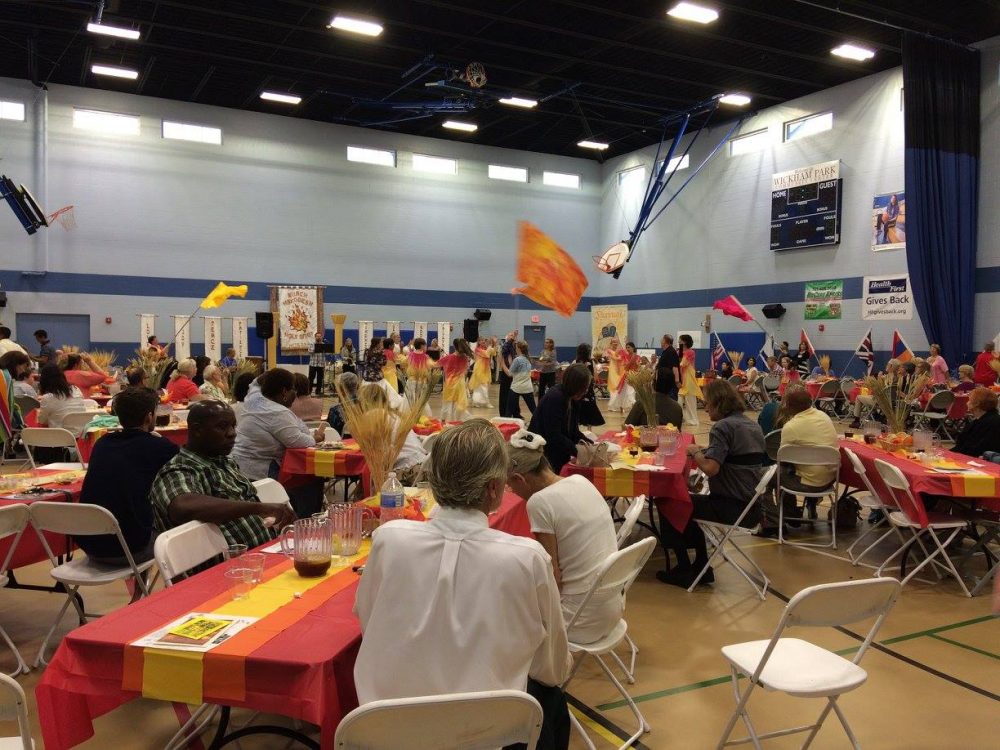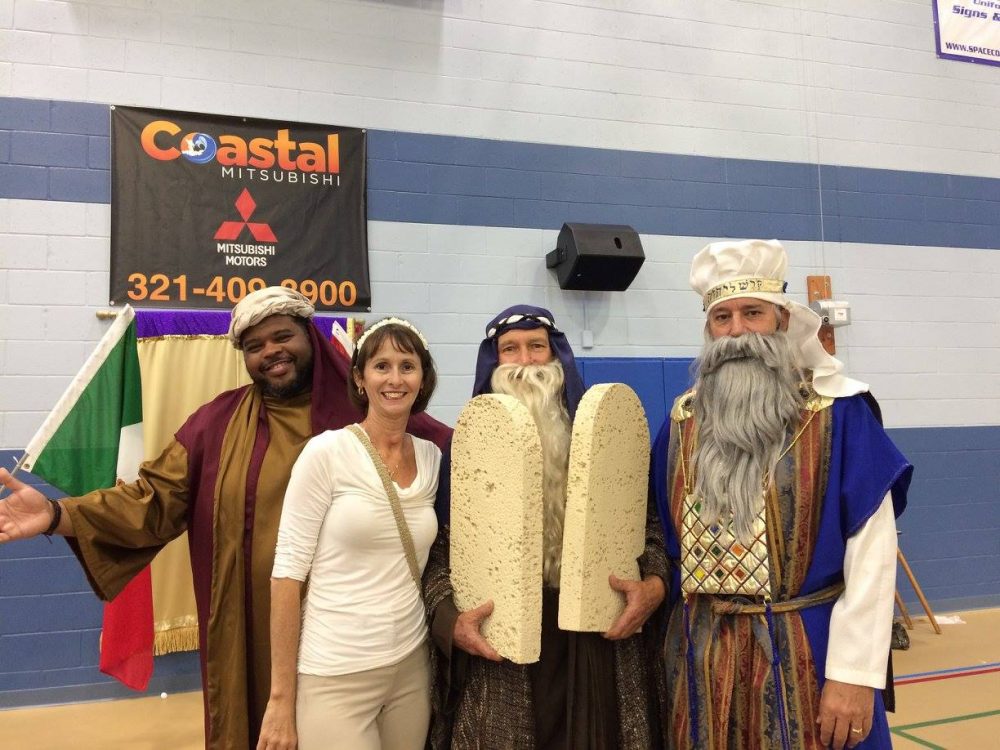These three chapters deal with three topics: the cleanliness of the Priests who serve in the Sanctuary (as well as the sacrifices brought there), the Holy Days God instructs us to celebrate, and the rules regarding punishment for blasphemy and murder.
As always, I find so much in here to talk about, all of which may be edifying to us and help us better understand what God requires of us. Yet, so that you don’t fall asleep during this message, I will choose just one topic to discuss. And this topic has been so zealously argued that I don’t think anyone will be yawning. At least, I hope not.
If you prefer to watch a video, click on this link: Watch the video.
For the purposes of this message, let’s separate Holy Days from holidays. A Holy Day is a festival or celebration which God has instructed us to observe, whereas a holiday is a man-made celebration. God’s Holy Days are found in the Torah, and holidays are found in the other books of the Old Covenant and in traditional religious doctrine.
The 7 Holy Days God has commanded we must celebrate are:
Shabbat, the day of rest;
Passover (a pilgrimage festival);
Feast of Unleavened Bread (7 days);
Shavuot (the second pilgrimage festival);
Yom Teruah (Day of Trumpets, later turned into Rosh Hashanah, a rabbinic celebration);
Yom Kippur (Day of Atonement); and
Sukkot (Tabernacles, and the third and final pilgrimage festival.)
Pilgrimage festivals are the only ones where it is required to travel to the location where God places his name. During the time of the Judges and up until King David moved it, that place was Shiloh, where the Tent of Sanctuary was located. King David moved the tent to Jerusalem and once Solomon completed the Temple, the Temple was the place to go. After the destruction of the Jerusalem Temple, Jews worldwide have had nowhere to go to bring a sacrifice so they can be absolved of their sins or celebrate the pilgrimage festivals as God instructed us to do.
To those of us who have accepted Yeshua as the Messiah God promised to send, his sacrifice replaced the need to bring an animal to the Temple in Jerusalem so we are able to receive forgiveness; however, we have to settle to go to Shul (Synagogue) instead of Jerusalem to celebrate the pilgrimage Holy Days.
Now let’s get into that heated topic I referred to earlier, which is this: because God instructed us to observe only these 7 Holy Days, is the observance of any other holiday a sin? Especially those created by Christianity, whose origins are found in paganistic celebrations.
I suppose we should begin with identifying what sin is: a sin, for the purpose of this discussion (and I believe it is a good definition for any discussion), is when we do something that God says we shouldn’t do, or, conversely, don’t do something that God says we should do.
So, with that in mind, let’s look at other holidays and test them against our definition of sin.
Let’s start with the Jewish ones, of which there are many. How about Rosh Hashana? The Jewish New Year, according to God, is the first of Aviv (now called Nisan), but the rabbinical or civic celebration is on what God said is the Day of Trumpets, a day to be a memorial. From that day on the 10 Days of Awe begin, in which we all look introspectively to determine how close, or how far, we have been from obeying God over the past year. Since Rosh Hashanah is a form of a memorial, I don’t see celebrating it the way we do as being sinful. There’s also Sh’mini Atzeret, also known as Simchat Torah, the 8th day of Sukkot. We honor God and his word by celebrating the turning back of the Torah from the end to the beginning so we can start reading it all over again. That doesn’t go against anything God said we should or should not do, and it is respectful, thankful and honoring to God.
There’s Purim (biblical but not commanded), the different fast days, the 9th of Av, and any number of lesser holidays, none of which dishonor God or go against anything he has decreed. So, since we celebrate God, honor him and his word, and aren’t doing anything against what he says, according to our definition of sin, celebrating these man-made Jewish holidays is not sinful.
Let’s now take a look at the major Christian holidays of Easter and Christmas…Oy Vey!! -now we are in for it.
Here is where the majority say celebrating them is sinful. The Maypole (a leftover from the Asherah pole), bunnies and eggs (paganistic fertility symbols), the name Easter (the pronunciation is the same for the fertility goddess, Ishtar), the use of a tree and ornaments to celebrate the birth of Yeshua (Jesus) is similar to graven images and Druidic practices…all of this is considered sinful. And the intention of the ones that worshiped false gods on these days and using these items was sinful.
But did God say we cannot celebrate the birth of the Messiah? Did God forbid us from celebrating the fulfillment of the work of the Messiah, demonstrated by his resurrection?
It is clearly a sin to celebrate and worship Ishtar, Molech, Ba’al, or any Semitic gods or the gods of other religions; but, if we are desiring to honor the one, true God and his Messiah with thankful worship in our hearts, will the paganistic origins of those days and items used overrule the current intent of our celebration? In other words, just because once, long ago these days were paganistic rituals, does that mean when we worship God and Messiah on these same days that they are unacceptable to God?
I don’t think so. God is clear that we are NOT to worship any other God but him, and if someone puts up a tree, adorns it, and does so solely to honor Messiah and God, they are NOT worshiping another God. Yes, maybe the things they are using and the way they are using them was once the way someone would worship a false god, but that is not what Gentiles Christians are doing. They are doing so with the intention of being worshipful and celebrating God’s gift of salvation through Yeshua.
For the record: I, myself, do not celebrate any Christian holidays because I am Jewish, but if I was a Gentile Believer, I most likely would still celebrate Easter and Christmas for the reasons I state above, to worship the God of Abraham, Isaac, and Jacob and to celebrate salvation through Messiah Yeshua (Jesus Christ.)
Throughout the Bible, both Old and New Covenants, God constantly makes it known to us that he is not interested in anyone just “going through the motions” but in what is in our hearts. He constantly told the Israelites that their bulls, sheep, and other offerings meant nothing to him because their hearts were not in it. I interpret this to mean that so long as what we offer to God is with a grateful and worshipful heart, God will accept it from us.
I absolutely believe that when we celebrate a day to honor and thank God, he is more interested in why we are doing it than in the way we are doing it.
Therefore, in my opinion, celebrating Easter and Christmas with the intention and desire to be thankful to God and the Messiah is not a sin. If you eat ham at your Easter or Christmas dinner, well…that is different. That is clearly something that is a sin because God said pork is off the menu, forever. But having a Christmas dinner, being with family and enjoying each other, celebrating God and his Messiah…really, how can that be wrong in God’s eyes?
Finally, it comes down to individual choice. If you don’t want to celebrate any festivals other than the ones God gave in the Torah, that is great! So long as you do that because you want to, and not because you are trying to earn anything with God. Likewise, if you give up something you like for Lent, celebrate Easter, put up your Christmas tree every year and do so solely with the intention of honoring God and Messiah, I believe God’s is fine with that.
There is, however, this caveat: if you do not celebrate the festivals God commanded in Leviticus Chapter 23 because you have been taught they are “Jewish” and not important to Christians, then you ARE in sin! Remember that our definition of sin is not doing what God says we should, and he clearly instructs us to celebrate these festivals. Even Yom Kippur, asking for forgiveness, is not done away with by Yeshua- we all sin, we all need to ask for forgiveness, and doing so in accordance with God’s instructions is never going to be wrong.
So, nu! There you have it! The bottom line, the Acid Test to determine if celebrating a man-made holiday is not a sin is this: if you celebrate a day to honor God and you do so with proper worship, desire, respect, and thankfulness in your heart, you will be OK.
Thank you for being here, please don’t forget to subscribe and share me out to your friends and family. I always welcome comments so long as they are respectful.
Tonight begins the Shabbat, so I wish you all Shabbat Shalom, L’hitraot and Baruch HaShem!

